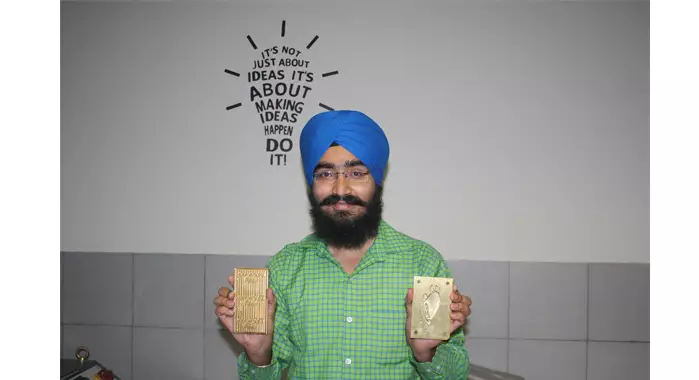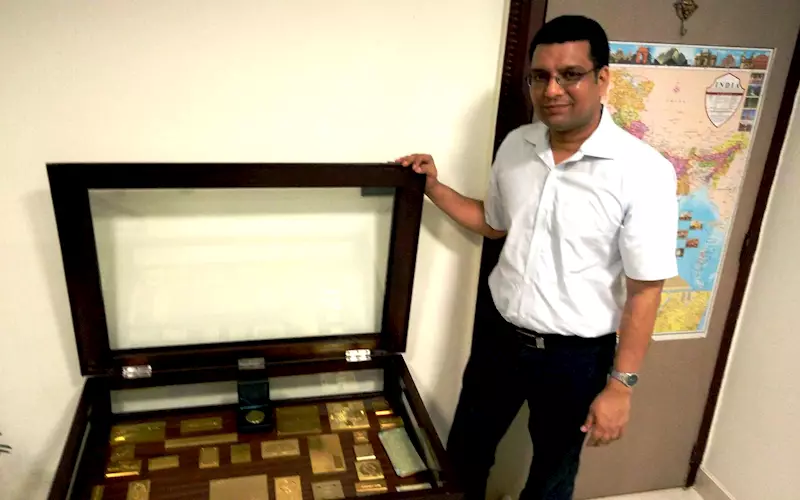Hinderer + Mühlich offers made in India foil stamping dies
One way to understand the growth of packaging in India is to look at how overseas firms are making investments in India. Take Hinderer + Mühlich, for example. The company, a member of the Kurz Foil group, a worldwide manufacturer of stamping foils, set up an Indian subsidiary in 2016 and has started producing dies for foil stamping from its facility located in Delhi’s Mayapuri Industrial Estate.
29 May 2017 | By Rahul Kumar
The reason was to increase the company’s market focus in the subcontinent. With a local facility for specialised die-making for foil stamping applications, the company can be immediately responsive to the needs of both existing and prospective customers. As Ashish Bansal, country head, H+M, explained, the company plans “to redefine the standards of die-making for foil stamping in the country.”
The Kurz group has 4,500 employees and has been present in the Indian market for many years, mainly in stamping foils for the graphic and plastic industry.
Foil stamping dies are used in markets, including the automotive, appliance, cosmetics, tobacco, medical and pharmaceutical segments. H+M’s local manufacturing of the stamping dies will bring to customers the benefits of stamping dies and tools of the highest precision and quality.

H+M’s stamping dies are made from German engraved brass, silicone or steel for transferring the hot stamping foil. The machines, processes and quality at the H+M plant in Mayapuri are the same as in the company’s plant in Germany. For maintaining production of dies and tools to the same high standards of quality and precision, the technical staff has also been trained in Germany. This is the reason why while the company started operating from April 2016, it went commercial only in November 2016, following detailed trial runs.
Bansal said, “Our commitment is to promptly provide stamping dies and tools of the highest precision and quality. While we maintain our market leadership in Europe, we also want to give a lasting impression to our worldwide markets.”
Bansal said to make sure that the production in the India plant is up to global standards, the company got its employees from Germany to setup the plant. “They were here until March 2017. Now, we are on our own,” he said.
According to Bansal, the company’s USP is quality and longevity. “A normal die gives somewhere from one to two lakh of impressions, but we give guarantee for one million impressions at least,” he said. “Our dies are perfectly straight in microns, manufactured by over-milled brass. The tolerance is .001 mm.”
To start with, the India plant is targeting the graphic arts industry. “We are here if you want anything to do with cartons, whether foil or without foil,” Bansal said. Saying that stamping depends on four things – temperature, pressure, foil and die, Bansal added, “We are clear what our strength is and we have to stick to that. We can do foil and stamping in one go, thus saving on multiple things.”
The company also supplies dies for the tea industry in Sri Lanka and the garments industry in Bangladesh.
Talking about India packaging industry, Bansal said the size of the industry would be more than the whole of Europe put together. And, according to Bansal, today is focus is on quality with price.
Up next, the company is venturing into plastic, to cater to segments such as automobile, interiors and others, like credit cards. “However, we are not manufacturing those dies here, those are imported from Germany,” said Bansal, adding, “We do not want to add more clients and meet capacity constraints. We need quality conscious clientele."
 |











 See All
See All